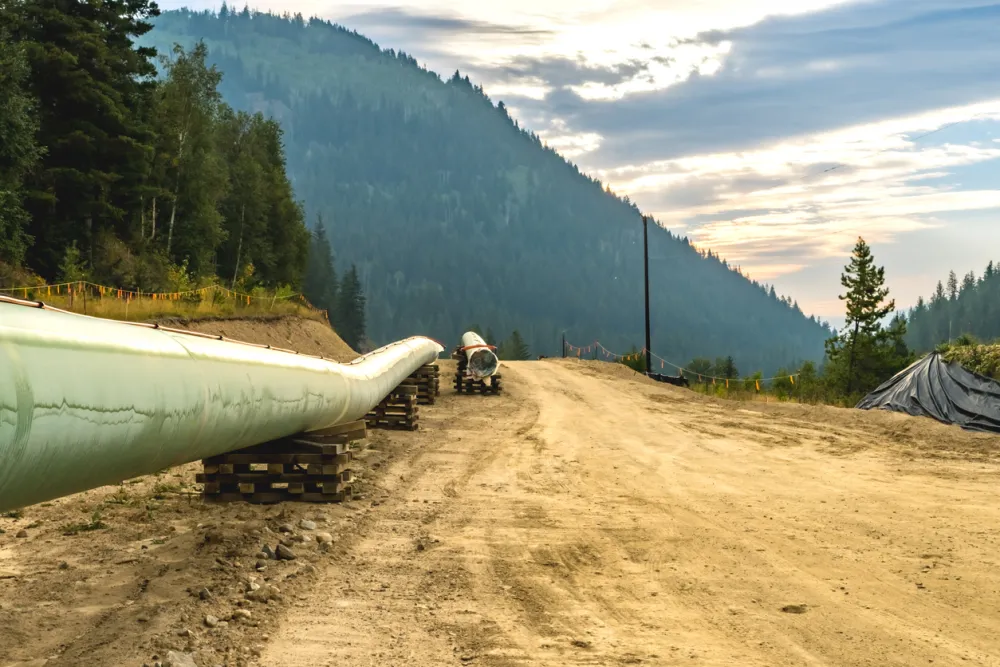CALGARY — CHRIS SEVERSON-BAKER, executive director of the Pembina Institute, made the following statement in response to the Government of Alberta’s announced changes to the Technology Innovation and Emissions Reduction regulation:
“Industrial carbon pricing is the key policy in Canada that catalyzes private investment in clean technology deployment and projects that reduce emissions from our heavy industries. Though it is sometimes misrepresented as a policy that creates uncertainty and impacts competitiveness, the truth is quite the opposite. In fact it has enjoyed long-standing support of companies, and provincial and federal governments because it spurs investment in the technologies and projects that will futureproof those businesses and keep Canada strong and prosperous long into the future. Any government seeking to achieve an economy that is climate competitive should have strong industrial carbon pricing as the bedrock of its policy framework.
“The changes announced to TIER today open the door to double counting, as well as slashing demand for TIER credits. This will further undermine the stability of the credit market. Based on what we’ve heard today, companies will be able to avoid paying a compliance cost at the point of investment in technologies, but then also generate a carbon credit when their emissions start to be reduced. Layered on top of the province’s decision earlier this year to freeze the headline carbon price at $95 per tonne, today’s changes will be bad news for companies in Alberta that need long-term certainty about the value of credits in order to invest billions of dollars in low-carbon industries.
“The grand bargain referred to over the last several weeks by the federal and Alberta governments will be unachievable without strong industrial carbon pricing and a stable TIER market. The only thing that has delayed the Pathways carbon capture project from moving forward over the last four years is a prolonged debate over how the project will be paid for. By further weakening TIER today, Alberta has removed one of the key pieces of financing on which that project relied, and made it even less likely that private investment will flow to carbon capture in the oilsands.”
[30]
Contact
Alex Burton
Director, Communications, Industrial Decarbonization
825-994-2558
Key facts
- Alberta’s industrial carbon pricing system, TIER, is the longest-running in North America, having been in place for 18 years.
- Under TIER, large emitters have the option to either invest in projects that reduce their emissions, or purchase carbon credits. The carbon credits are generated by other emitters that have invested in solutions that reduce their emissions. Being able to generate credits is part of what creates a business case for companies to invest in emissions reductions projects.
- TIER’s carbon credit market only functions correctly if the cost of a tonne of carbon emitted increases every year. This gives companies clarity into the future on how many credits they can earn under TIER if they make investments to reduce their emissions. Over time, as more such investments are made, the cost of a tonne needs to increase to keep incentivising further investment.
- A strong industrial carbon price is high enough that companies want to avoid paying it by lowering their emissions. It also means that the credits that low emitters generate are worth creating.
- In May 2025, the Government of Alberta froze TIER at $95/tonne, and did not commit to future increases. This has created significant investment uncertainty and likely contributed to projects being cancelled or paused in the province. Examples are not only in the oil and gas industry – they include other potential economic diversification opportunities for Alberta, such as Dow Inc.’s planned $9bn investment in a net-zero petrochemicals project, which was previously planned for construction near Edmonton.
- Emissions Reduction Alberta reports it has spent around $990 million of TIER revenue to date on projects that it estimates will reduce emissions by hundreds of thousands of tonnes per year, if the technologies are successful and deployed at scale. The distribution of these TIER funds has drawn in investments of $10.5bn from other funding sources – indicating TIER works to catalyze further investment throughout the economy.
- Today’s announcement further weakens TIER by exacerbating the over-supply of credits that the TIER is already struggling with. The new investment recognition mechanism announced today will also further reduce the demand for those credits. Overall, this will further depress credit prices and reduce the likelihood of companies making investments in emissions reductions.
- It is also unclear how Alberta will ensure actual emissions reductions occur as a result of these investments, and whether there will be double crediting for these investments (once when the investment is made, and again while project is operating).
- The Government of Canada has previously deemed TIER to be equivalent to its Output Based Pricing System (the federal backstop). Following today’s changes to TIER, the Government of Canada should continue to assess if that equivalency agreement is valid.
- In today’s announcement, the Government of Alberta made various claims about its emissions reduction progress to date. For more background on this, see our previous article, Grand bargains and perilous pitfalls.
Background
Media release: Pembina statement on industrial carbon pricing in Canada
Submission: Amendments to Alberta's TIER Policy




